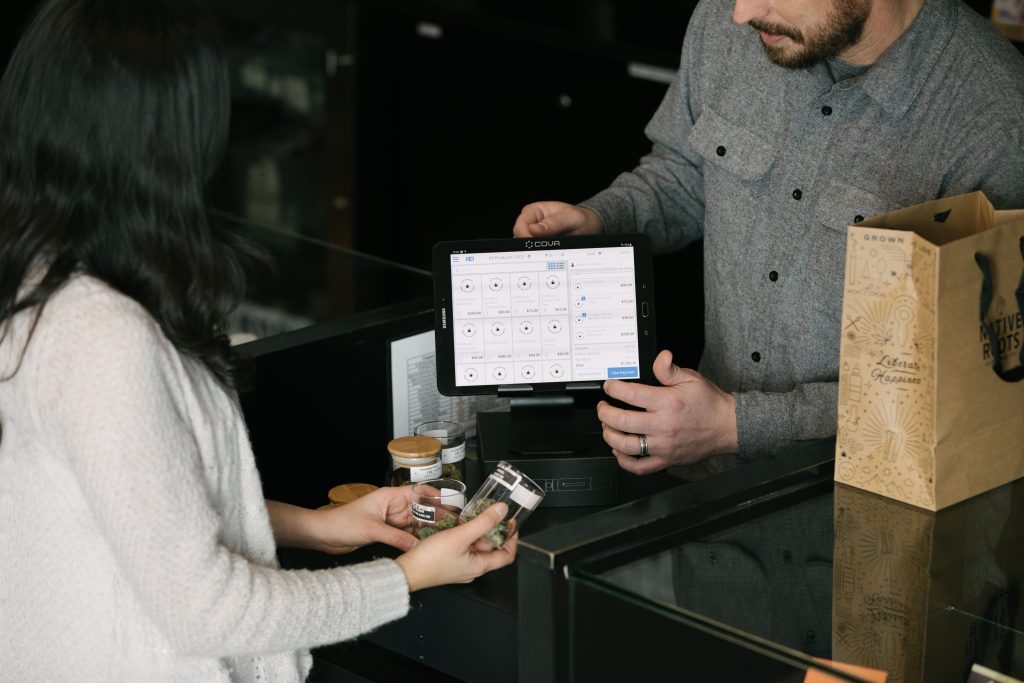Imagine the busy world of restaurants, where chefs create delicious dishes that people love to eat. Now, imagine that all this delicious food needs a well-organized plan to make it to your plate.
In the restaurant world, this plan is called a “supply chain.” It’s like a secret recipe for success. It helps make sure that the ingredients arrive on time, stay fresh, and don’t cost too much. Think of it as the backbone that keeps everything running smoothly in the kitchen.
Importance of a Well-Functioning Supply Chain in the Restaurant Industry
Restaurants need to be precise and consistent. They want to use the freshest ingredients and keep their menu just right. That’s where the supply chain comes in. If something goes wrong, like not having enough ingredients or delays in deliveries, it can mess up the whole meal and even the restaurant’s profits.
In this blog, we’ll take a journey to explore the challenges that restaurants face with their supply chains. We’ll also discover how important Food Distributors are in helping restaurants overcome these challenges. It’s like going on an adventure to learn about how restaurants make sure you get your favourite dishes, just the way you like them.
So, get ready for an exciting journey as we explore the tricky world of “Supply Chain Challenges for Restaurants” and find out how chefs and food distributors work together to make sure you have a great meal when you visit a restaurant.
Supply Chain Challenges for Restaurants
Ingredient Sourcing and Quality Control
- Ensuring Fresh and Consistent Ingredients
For restaurants, having fresh and consistent ingredients is like having the right colours on an artist’s palette. It’s essential for creating delicious dishes that customers love. However, it can be challenging to make sure every tomato, piece of meat, or lettuce leaf is top-notch.
- Managing Supplier Relationships
Think of supplier relationships as friendships for restaurants. They need reliable friends who can provide them with quality ingredients on time. Building and maintaining these friendships with suppliers is crucial. If there are any hiccups in the relationship, it can affect the restaurant’s ability to serve tasty meals.
Inventory Management: Keeping Stock in Check

- Preventing Food Waste
Within the realm of supply chain challenges for restaurants, one critical aspect is preventing food waste. Imagine your kitchen at home. You wouldn’t want to buy too much food and let it go to waste, right? The same goes for restaurants but on a larger scale. Proper Inventory Management helps restaurants avoid throwing away good food. It’s like making sure you use all the ingredients in your pantry before they go bad.
- Balancing Perishable and Non-Perishable Goods
In the restaurant world, they deal with both things that can spoil quickly, like fresh vegetables, and things that last a long time, like cans of beans. Balancing these two types of items is like finding the right mix of colours in a painting. Restaurants need to use their perishable items before they go bad while also keeping a stock of non-perishable items for the long run. This helps them run their kitchen smoothly while keeping costs in check.
Cost Control

- Managing Fluctuating Food Prices
In the world of restaurant supply chain challenges, one of the toughest adversaries is managing the rollercoaster of food prices. Think of it like trying to budget when the prices of your favourite snacks keep going up and down. Restaurants need strategies to deal with these price swings, ensuring they can still serve delicious meals without breaking the bank.
- Reducing Overhead Costs
If you have a household budget, and you’re trying to cut down on unnecessary expenses to save money. For restaurants, reducing overhead costs is similar, it’s about finding ways to save money on things like rent, utilities, and staffing. Cost control measures like these help restaurants stay financially healthy and continue offering their tasty dishes to customers.
The Role of Distributors in Overcoming Supply Chain Challenges
Streamlined Sourcing
- The Benefits of Working with Reputable Distributors
In the complex world of supply chain challenges for restaurants, distributors act as reliable guides. Think of them as experienced tour guides who know the best routes. Restaurants benefit immensely from working with reputable distributors because they ensure a smooth and efficient supply chain. These distributors have a track record of delivering quality ingredients on time, which helps restaurants maintain consistency and reliability in their menu offerings.
- Ensuring Product Quality and Safety
Just as a trustworthy guide ensures your safety during a journey, reputable distributors prioritize product quality and safety. They do rigorous checks to make sure the ingredients they provide are fresh, safe to consume, and of high quality. For restaurants, this means peace of mind, knowing that the ingredients they receive are up to the standards required to create delicious and safe meals for their customers. It’s like having a guarantee of quality in every box of ingredients delivered by the distributor.
Efficient Inventory Management
- Just-in-Time Deliveries
If you’re preparing for a big event, and you want everything to arrive at the perfect moment. Distributors can make this happen with just-in-time deliveries. It’s like a well-choreographed dance where ingredients arrive precisely when they’re needed, reducing the need for large storage spaces and ensuring freshness. Restaurants can focus on creating amazing dishes without worrying about storing excess supplies.
- Customized Inventory Solutions
Every restaurant is unique, like different puzzle pieces in a larger picture. Distributors understand this and offer customized inventory solutions. It’s akin to tailoring a suit to fit perfectly. Restaurants can work closely with distributors to create inventory plans that match their specific needs. This level of personalization ensures that restaurants have the right ingredients on hand, minimizing waste and maximizing efficiency in their supply chain.
Cost-Effective Solutions
- Bulk Purchasing Advantages

Imagine going to a store and buying in bulk to save money. Distributors offer this same advantage to restaurants, but on a larger scale. It’s like getting a discount for buying a lot of something at once. Restaurants can benefit from bulk purchasing, which reduces the cost per unit of ingredients. This cost-effective approach helps restaurants manage their budget while ensuring a steady supply of necessary items.
- Negotiating Better Prices
Think of distributors as skilled negotiators who can help restaurants secure better deals. Just like haggling at a flea market, distributors negotiate with suppliers to get the best prices for their restaurant clients. This negotiation prowess enables restaurants to enjoy cost savings, making it more affordable to create delightful dishes without compromising on quality.
Future Trends in Restaurant Supply Chains
- Predictions for the Future of Restaurant Supply Chain Management
The restaurant supply chain landscape is evolving, and like looking into a crystal ball, we can glimpse what the future may hold. Here are some predictions for the future of restaurant supply chain management:
Advanced Technology Integration: Restaurants will embrace even more advanced technology, like AI and data analytics, to streamline supply chain processes, forecast demand accurately, and reduce waste.
Increased Sustainability: Environmental concerns will drive restaurants to adopt greener practices, from sourcing locally to reducing packaging waste, contributing to a more sustainable supply chain.
Supply Chain Transparency: Customers will demand greater transparency in the supply chain, leading restaurants to share information about sourcing, product origins, and ethical practices.
- How Distributors Will Continue to Adapt to Evolving Needs
Distributors, much like chameleons adapting to their surroundings, will continue to evolve to meet the changing needs of restaurants:
Technological Integration: Distributors will leverage technology to provide real-time tracking, data analytics, and online ordering platforms to enhance efficiency and convenience.
Sustainable Practices: Distributors will source and deliver products with sustainability in mind, offering eco-friendly options and reducing their environmental footprint.
Customized Solutions: Distributors will offer more personalized inventory management solutions, catering to the unique requirements of each restaurant, ensuring efficient and cost-effective supply chains.
As the restaurant supply chain ecosystem transforms, distributors will play a pivotal role in helping restaurants navigate these changes, ensuring they remain agile, competitive, and responsive to emerging trends and customer demands.
Read More: A Complete Guide to Food Supply Chain
Final Thoughts:
Our exploration of supply chain challenges for restaurants has illuminated the intricate path that ingredients travel to create the delightful dishes we savour. In the world of restaurants, where chefs create delicious dishes, there’s a hidden hero called the supply chain. It’s like the magic behind the scenes that makes sure everything runs smoothly. We talked about the problems that restaurants face, and one big help comes from food distributors.
The challenges in restaurant supply chains range from sourcing top-quality ingredients to managing costs and preventing food waste. Distributors streamline sourcing, ensure product quality and safety, offer efficient inventory solutions, enable cost-effective bulk purchasing, and excel in price negotiations. These benefits, akin to a well-balanced recipe, ensure the smooth functioning of restaurant supply chains.
Whether you’re a seasoned restaurant pro or just starting out, we encourage you to team up with food distributors. They aren’t just business partners; they’re the backbone of culinary success. With their help, you can handle the tricky parts of running a restaurant more easily. It’s like getting expert advice to make every meal a masterpiece.






